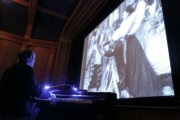WASHINGTON — A full 10 days after the crash of Metrojet Flight 9268 in Egypt’s Sinai, which killed 224 people, Egyptian and Russian investigators may be ready to admit it was blown out of the sky by an ambitious terrorist.
In a tweet Monday night Russian Prime Minister Dmitry Medvedev delivered the first substantive hint that Russian investigators believe a bomb might have brought down the Russian-bound plane.
“The Russian plane crash in Egypt may have been the result of a terrorist attack, so all flights to Egypt has (sic) been suspended since Friday,” said Medvedev in his tweet.
This came days after President Barack Obama said in a radio interview, “I think there’s a possibility that there was a bomb on board.”
British Prime Minister David Cameron ignited the concern Nov. 5 when he said, “As more information has come to light, we have become concerned that the plane may well have been brought down by an explosive device.”
As the search for clues continues, a key person of interest has emerged.
Abu Usama al-Masri, a shadowy, Egyptian cleric and leader of the Islamic State in Iraq and the Levant, ISIL, branch in the Sinai Peninsula, known as Wilayat Sinai or Sinai Province, is believed to the mastermind.
He claimed responsibility in an audio message on Nov. 1, 2015.
“We are the ones who downed it [Metrojet Flight 9268] by the grace of Allah, and we are not compelled to announce the method that brought it down,” he said in the message.
The crash took place on the one-year anniversary of the date that his terrorist group, formerly known as Ansar Bait al-Maqdis, pledged allegiance to ISIL.
Since that time, U.S. and Middle Eastern intelligence sources believe al-Masri, a former professor at Al-Azhat University in Cairo, had been seeking an opportunity to impress ISIL’s leadership.
A former agent with Israel’s Shin Beit security force believes al-Masri is perhaps the most influential terrorist in the region; and if the theory of a bomb on the plane holds together, he’s the person that most likely orchestrated it.
“He’s the one who leads this group right now in Sinai and he’s the one who took the responsibility,” said Offer Baruch.
Baruch, who retired after investigating terror attacks for 25 years in the Middle East, knows the region and Sharm el-Sheik airport.
“The security procedures are very poor,” he said.
He says he believes “they managed to conceal a bomb in some kind of luggage. It’s very easy to do in Sinai. The access to the airport is very easy over there.”
Baruch and Fred Burton, a former State Department counterterrorism agent, believe the combination of lax security and a sophisticated bomb maker may have created the opening al-Masi was looking for.
Burton — who investigated the bombing of Pan Am Flight 103 that crashed in Lockerbie, Scotland, in December 1988, killing 270 people — said there are two key possibilities.
“One would be a timed device and the second would be a barometric device. And the barometric is a little bit more complicated to get right. That would be a device designed to detonate at a certain altitude.”
U.S. intelligence sources told WTOP late Tuesday the highly potent, plastic explosive C-4 may be the compound that was used. Russian and Egyptian investigators say they’re still trying to make that determination.
U.S. law enforcement which has extremely sophisticated forensic capabilities have been standing by for days after offering to help.
“The FBI has offered forensic assistance and other services to our partners in Egypt and Russia, and stands ready to assist. But have not yet received a response,” said Joshua Campbell, supervisory special agent, in the FBI’s Office of Public Affairs.
As the investigation continues, intelligence agencies around the world are growing anxious.
According to Baruch, Wilayat Sinai has the space, skill and connections to plot significant attacks. He and other experts worry that if it has the backing of the Islamic State, which by conservative estimates may be worth $2 billion, the group could replicate the attack many times.
“Until you determine who put this together, you’re very, very fearful they could get other devices onto other airlines elsewhere around the world,” said Burton.





